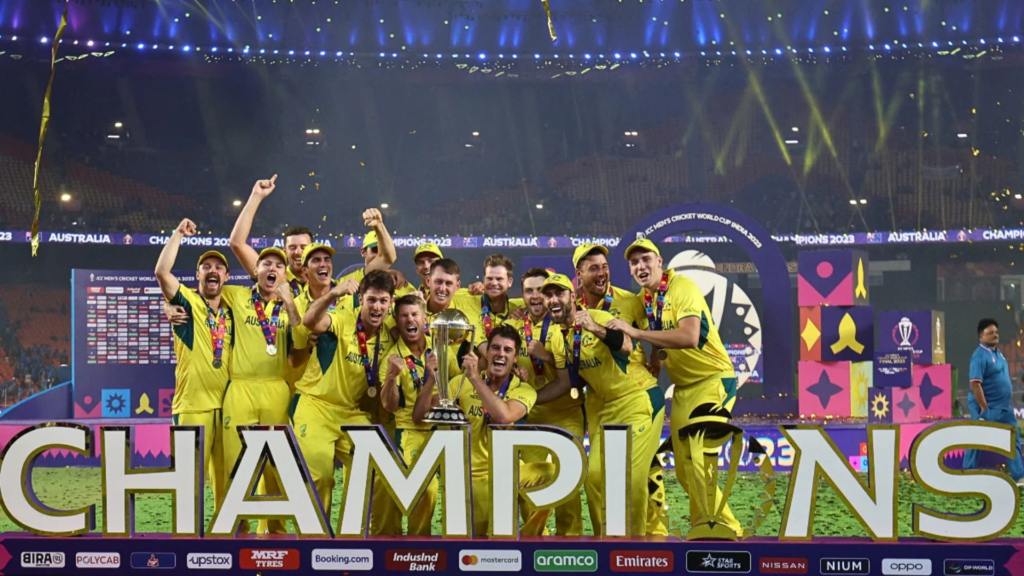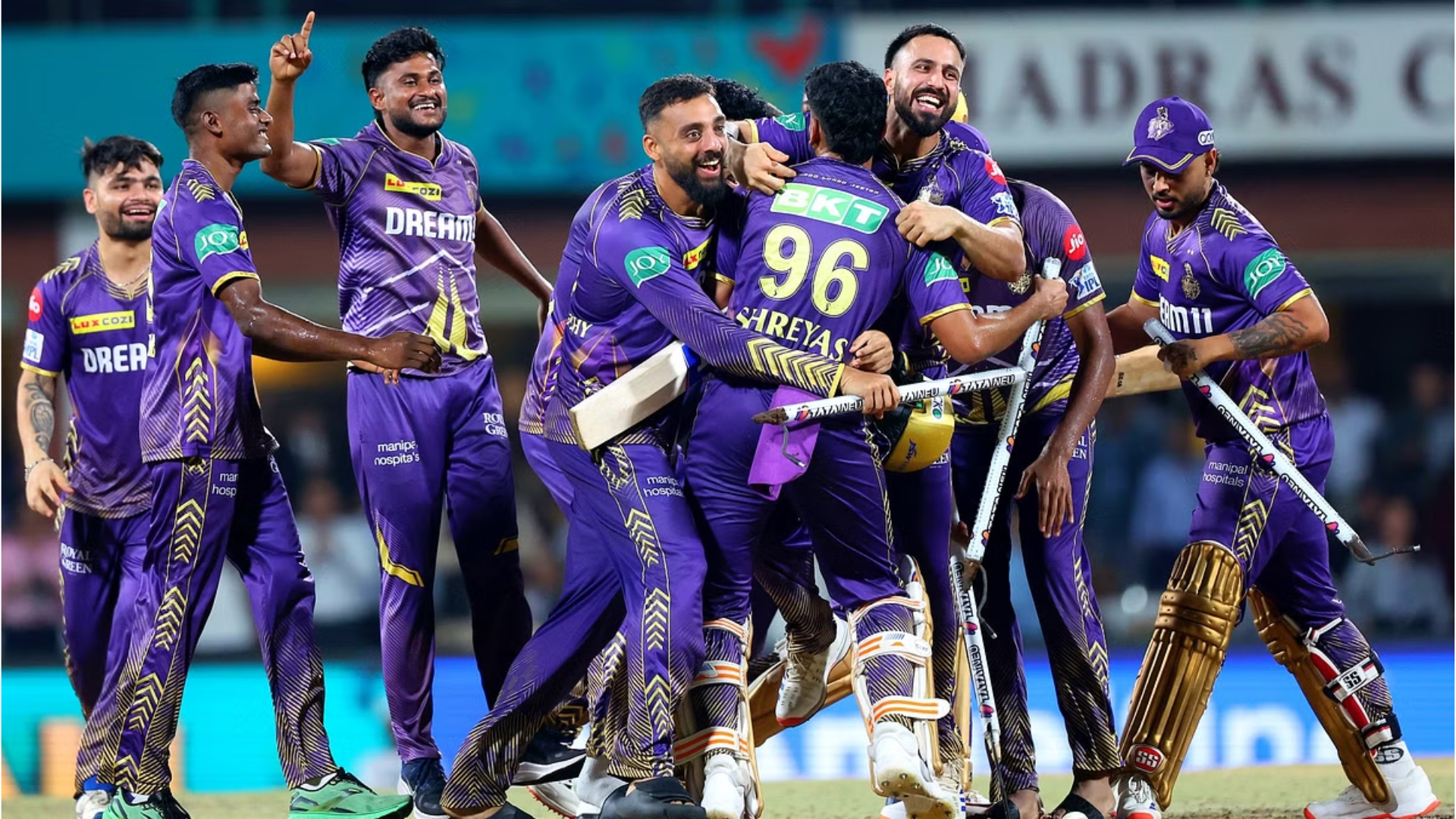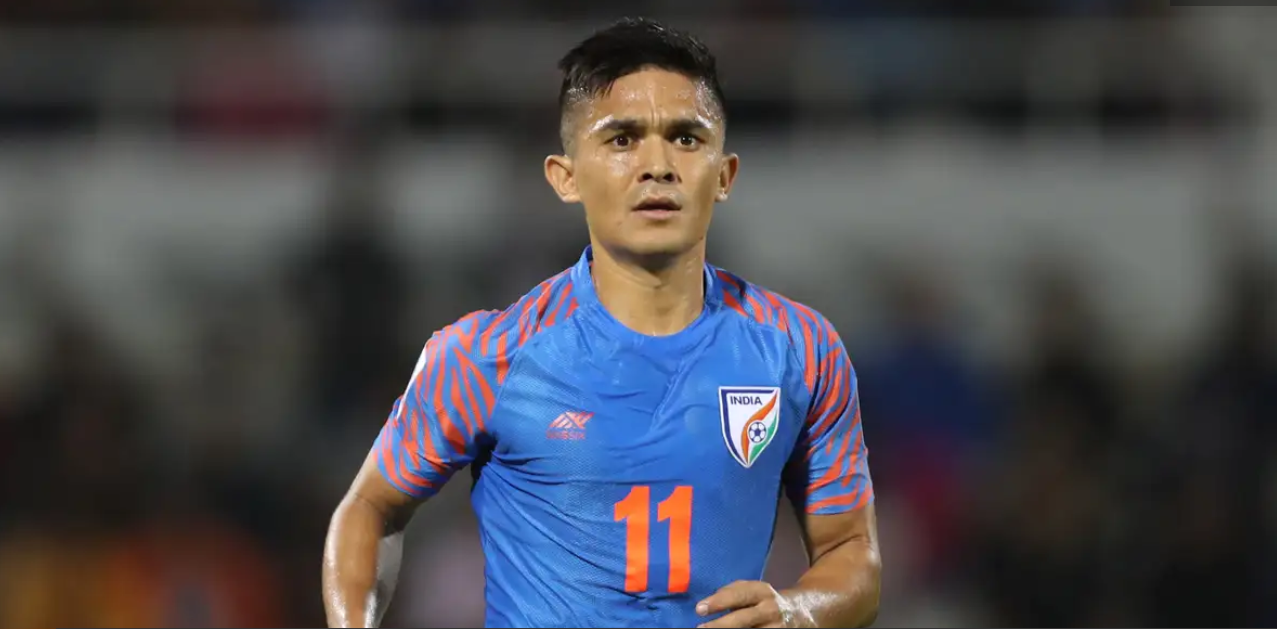Australia lifts ODI World Cup for 6th time

Australia landed it’s sixth Cricket World Cup title on Sunday, at the Narendra Modi Stadium in Ahmedabad, beating India by six wickets. This was also its second time defeating India in a World Cup final, the first time coming 20 years earlier.
A brilliant 137 from 120 balls by Travis Head turned the match on its head, after reeling at 47 for 3 in a low-scoring match. While Head went on the rampage, the other end was held by a steady Marnus Labuschagne. This partnership helped the Aussies ultimately coast to victory with seven overs and six wickets to spare.
In the 241, Labuschagne’s contribution was 58 not out, with the pair contributing 192 runs.
India’s innings was a disaster. Put in to bat after losing the loss, India began at a blistering pace, with Rohit Sharma reaching 47 in just 31 balls.
But then a brilliant catch by Travis Head (who won the Platter of the Match Award, the same award he also won at the World Test Championship against the same opposition earlier this year), running behind 11 metres to latch on to a catch, was the beginning of India’s downfall.
At that point Sharma and Kohli, who came in after Gill got out cheap at four, were going steady and strong. Another wicket later, Kohli stitched up another steady partnership with wicketkeeper KL Rahul, but after he got out at 54, bowled by the captain, pace bowler Pat Cummins, there was no one to hold the innings. It folded up at just 240, despite a gritty 107-ball 66 by Rahul.
India was expected to win the final by many among the pundits and the public alike, after an unbeaten run of 10 games.
It was Australia who were apparently struggling, with a tight victory against South Africa in the semifinal, and a victory snatched from the jaws of defeat two matches earlier (only because of a record-setting 201 not out by Simon Maxwell) against lowly Afghanistan. And the team begam the tournament losing the first two games.
But in an ODI World Cup final, Australia becomes a different creature altogether—winning its sixth title in Ahmedabad against losing just two finals. The winning mentality was there in its full glory, turning things around even after losing three wickets early and holding on to its own despite playing in front of a huge partisan crowd, cheering India lustily with every ball.
For captain Cummins, it is a culmination of a brilliant year, having retained the Ashes after a 2-2 draw against England, then defeating India in the World Test Championship final and now, this.
A brilliant turn by spinner Adam Zampa also helped the Kangaroos majorly at the World Cup, who emerged as the second-highest wicket-taker after India’s Mohammed Shami. Shami was brilliant all through, but could not work his magic in the final.
The Indians created several records in the tournament—including Virat Kohli scoring a world record-breaking 50 ODI centuries (named the Player of the Tournament) and Rohit Sharma in the final becoming the captain with the highest runs in a World Cup—but in the final, it was Australia which had its way.
A few facts about the head-turning innings
Travis Head’s 137 was the highest score while chasing in a men’s ODI World Cup final, surpassing Aravinda de Silva’s unbeaten 107 against Australia in 1996 in another match-winning cause.
His partnership with Labuschagne was the second highest in a men’s ODI World Cup final, behind the unbroken 234 between Ricky Ponting and Damien Martyn against India in 2003.
He scored 137 in 120 balls. Had he scored a boundary in the ball he got caught out in front of the ropes, he would have matched Ricky Ponting’s 141 in 121 balls in the 2003 final against India (which also turned out to be the winning score), besides scoring the winning runs.
He became the first player to score two hundreds in men’s ICC tournament finals — 163 in the first innings of the World Test Championship final against India earlier this year. and 137 in the World Cup final, again against India.
Head became the fourth player to win the player-of-the-match award in both the semi-final and the final of the same men’s ODI World Cup, after Mohinder Amarnath in 1983, Aravinda de Silva in 1996 and Shane Warne in 1999, and all were match-winning contributions.







